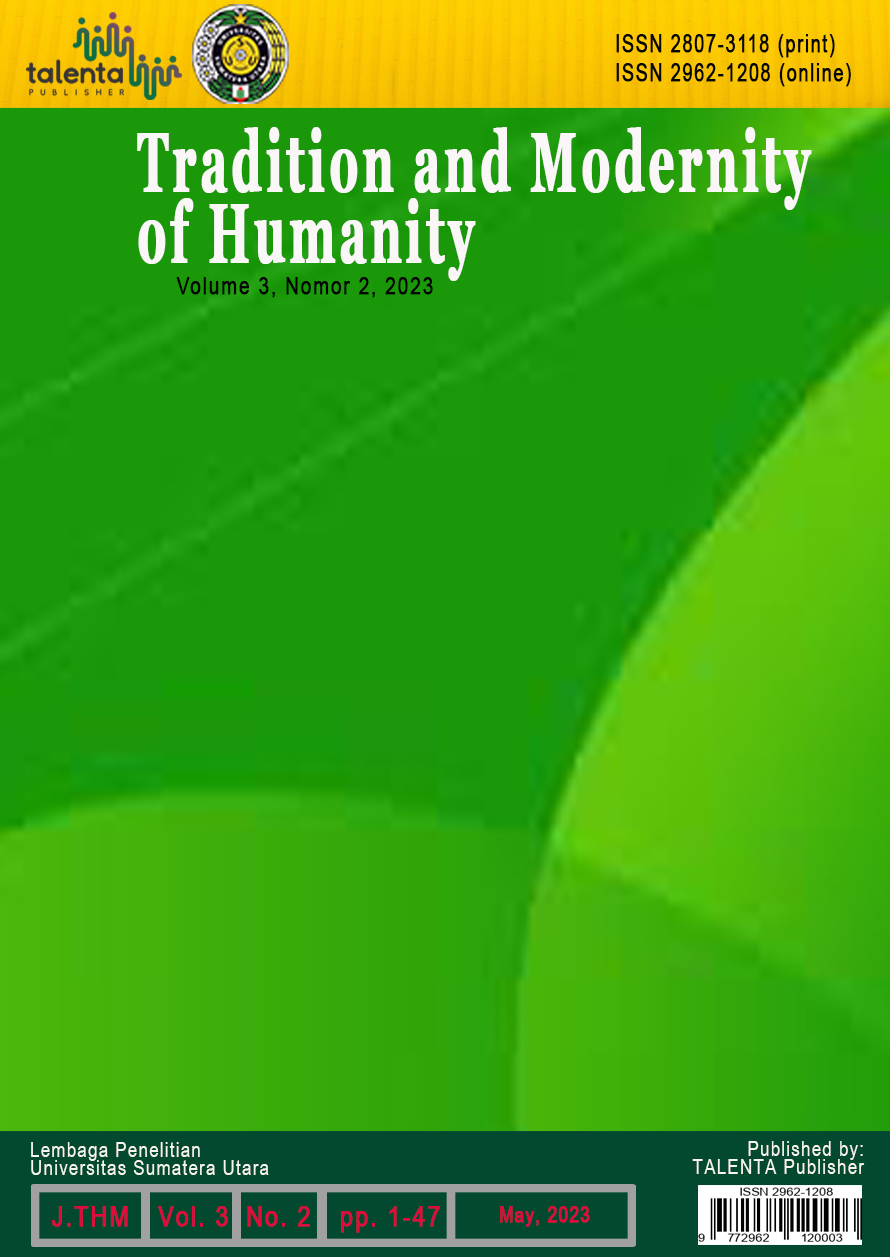Mengetong Tradition in Minang Pariaman Wedding Ceremony: A Show-Off or Mutual Cooperation?
Keywords:
Oral tradition, Mengetong, performance theory, local wisdomAbstract
Indonesia has many tribes and produces many traditions. Tradition is a reflection of certain community cultures. One of them is the Mengetong tradition at the wedding ceremony of the Minang Pariaman community in Medan. This research is initiated by the distinction of this tradition which causes controversy. As a brief overview, Mengetong is when the amount of money given to the bride and groom is read aloud during the wedding reception. The initial perception of this research is to present an opinion based on empirical evidence that this tradition has a positive value rather than a negative one. This research applies the performance theory and local wisdom value theory. The data are in the form of text, and co-text taken from the video recordings of the Mengetong activity, supporting documents, and an interview with a customary holder. The results show that Mengetong is included in five elements of performance; 1) specific schedule, 2) specific instruments, 3) non-profitable, 4) having certain rules, and 5) being carried out in a specific location. This result indicated that Mengetong is indeed a tradition performed at a specific time, using specific instruments/tools, not a profit-oriented activity, applying specific rules in action and done by certain tribes. Moreover, local wisdom identifies this tradition as a social value in cooperation and reciprocity activity. This result also portrays the togetherness (gotong-royong) characteristic of Indonesian people. In the end, this study claimed that Mengetong in the Pariaman Wedding ceremony is meant to help each other when a family conduct a wedding ceremony.
Downloads
Downloads
Published
Versions
- 2023-11-21 (2)
- 2023-05-15 (1)
Issue
Section
License

This work is licensed under a Creative Commons Attribution-ShareAlike 4.0 International License.






